TL;DR:
- Take ownership to speak up when there is injustice and make a difference.
- Equitable practices in education mean change sparked by reflection.
- Consider our biases and use picture books to introduce the 7 “isms” to start the conversation: ableism, classism, ageism, religion as an ism, racism, homophobia/heterosexism, and sexism.
Take ownership: It’s leadership!
- Leaders speak up when there is injustice.
- Teachers make a difference in their classrooms, schools, and communities.
- Leadership means doing what you can in your own way to make a positive impact. Be an anti-racist teacher.
“Equity and Inclusion, Just Got Better” Journaling/Reflection Questions:
- What “ism” are you most comfortable with if you were to teach it?
- What “ism” are you least comfortable teaching?
- How would you start a lesson on the most comfortable topic that teaches others about discrimination and “ism” or biases?
Equitable practices in education means change.
- Looking at your teaching and examining what can you change is a good starting point.
- What about adding opportunities to really get to know your students?
- Teach about things that are globally relevant so that real world connections are made. Let’s create the world we want live in.
Why do we need to embrace changes and learn as an educator?
Take ownership: Here are the 7 isms to consider.
Teaching about “isms” matters. It’s showing how to get along and not be biased towards others in the world. Let’s create the world we want live in.
Do you embed these topics into your everyday teaching?
Take a piece of paper and reflect on the following topics:
- How often do you embed these topics into your teaching?
- Courageous conversations – How many can you have?
- Teachable moments – Dismantle and talk about these isms.
I recommend these picture books to teach and start each conversation on teaching about bias. Start discussions about “isms.” Some topics will be more in your comfort zone and others not. Please remember that uncomfortable feeling is where you grow and learn and empower others…take that first step.
I love to start conversations on the following equity topics by using picture books. Read them out loud as a starting point for a discussion to begin teaching about the “ism” or bias. I always found this is a good way to start a lesson no matter which grade or subject area you teach:
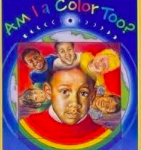
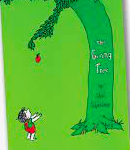
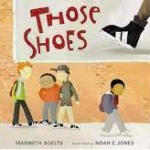
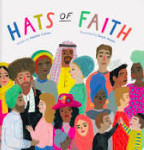

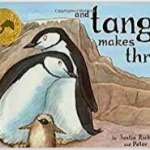

- Ableism
- Classism
- Ageism
- Religion as an ism
- Racism
- Homophobia / Heterosexism
- Sexism
This month, see if you have at least one picture or chapter book to start off the conversation as your next step. How many topics can you embed into your programming? Are you feeling comfortable with teaching about bias? Do you need a definition and better understanding of why you are not comfortable with the topics?
[scroll down to keep reading]
Small ways to be an Open Minded Equity Leader in your classroom
- Reflect on your practice.
- Think about the moments that make you feel uncomfortable.
- Embrace the heartfelt moments to help a student by increasing opportunities and access by differentiating instructional practice.
Take ownership: What is equity and how does it impact your teaching practice?
Always consider how you can take away a barrier or obstacle for a student as they learn so they have a levelled playing field to achieve success.
If you look up the Teach Better chat “Let’s Talk Equity!” recap conversation you will be able to reflect more on this graphic used for one of the questions. There were a lot of interesting reflection points brought up about invisible bias and how to address them in a school setting to achieve liberation.
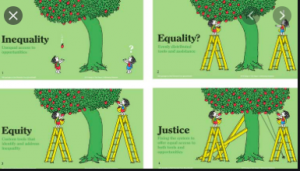
Graphic Credit: From the Giving Tree Book
Be an anti-racist teacher. One day at a time, you are going to make mistakes and that’s ok. It’s a learning opportunity to address and reconsider your approach to how you teach about isms, biases, and being a pro-active educational leader.
Yours in Education,
Nilmini
References
Jewell, Tiffany. “This Book is Anti-Racist”. 2020.
Ratwatte-Henstridge, Delani Nilmini. Teach Better Chat: 2021 June 24th. “Let’s Talk Equity Tonight!”
About Nilmini Ratwatte-Henstridge
Nilmini Ratwatte-Henstridge teaches in Brampton, Ontario, Canada. She was born in Sri Lanka and immigrated to Canada with her family. As an Elementary School Teacher who is passionate about Equity, Social Justice, and Human Rights in education, she enjoys teaching the younger generation to be global-minded citizens.
Discovering the world by connecting with others is an opportunity that we have today in our society today and she loves meeting new people! She is always learning while traveling to understand the inter-connectedness of this beautiful earth we live in! Nilmini LOVES cooking great meals, watching movies, and the latest fashion trends! Family and friends are close to her heart as she looks forward to balancing social media and navigating professional learning communities in education to network globally this year!


